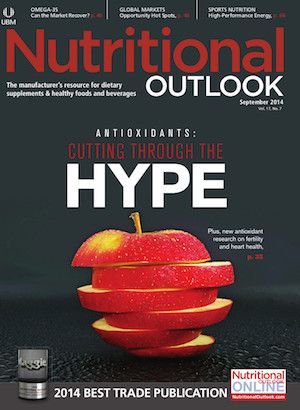Calcium Does Not Increase Cardio Risk: New Meta-Analysis
According to the researchers, concern has been raised over the design of past meta-analyses.

Whether or not calcium increases the risk of heart disease is a controversy that has plagued this bone-building mineral for the past decade. While some past studies found a link between calcium supplementation and an increase in cardiovascular events such as myocardial infarction, stroke, or overall mortality, many experts point out that studies supporting the safety and benefit of calcium supplementation outweigh those suggesting risk. A new meta-analysis published in the Journal of Bone and Mineral Research stands on the side of supplement safety, with researchers finding no increased risk of coronary heart disease (CHD) or all-cause mortality in post-menopausal women supplementing with calcium and vitamin D.
According to the researchers, concern has been raised over the design of past meta-analyses looking at the link between calcium supplementation, with or without vitamin D, and the risk of myocardial infarction (MI).
“We therefore undertook a meta-analysis of randomized controlled trials with placebo or no-treatment control groups to determine if these supplements increase all-cause mortality and coronary heart disease (CHD) risk including: MI, angina pectoris and acute coronary syndrome, and chronic CHD verified by clinical review, hospital record, or death certificate in elderly women,” they said.
Eighteen clinical trials ultimately met the researchers’ criteria and were included in the meta-analysis, which encompassed data on 63,653 participants and accounting for 3,390 CHD events and 4,157 deaths. The researchers drew data from The Cochrane Central Register of Controlled Trials, MEDLINE, and the EMBASE database, spanning January 1, 1966 to May 24, 2013.
Upon examining the data, the researchers concluded that “current evidence does not support the hypothesis that calcium supplementation with or without vitamin D increase coronary heart disease or all-cause mortality risk in elderly women.” They recommend long-term supplementation with calcium in cases where the recommended daily intake of calcium cannot be met through food sources alone.
This study is the fifth over the last couple of years to confirm calcium’s safety, points out dietary supplement association the Council for Responsible Nutrition (CRN; Washington, DC)-a conclusion that “is consistent with the overall body of scientific research,” CRN says. The association points to recent studies by Paik et al. (2014)1, Prentice et al. (2013)2, Downing et al. (2013)3, and Samelson et al. (2012)4 reaffirming calcium’s safety.
“The evidence for why women should have confidence in the safety of calcium continues to grow,” said Andrea Wong, PhD, CRN’s vice president of scientific and regulatory affairs, in a press release. “The benefits of calcium occur at every life stage, but because of the natural loss of calcium that that occurs as we age, getting enough of this essential nutrient is especially important for the older populations, who are at risk for falls and fractures. Post-menopausal women can confidently take calcium supplements if getting enough calcium from the diet is not possible.”
Jennifer Grebow
Editor-in-Chief
Nutritional Outlook magazine jennifer.grebow@ubm.com
References
1. Paik JM, Curhan GC, Sun Q, et al. Calcium supplement intake and risk of cardiovascular disease in women. Osteoporos Int. 2014; May 7 (Published online ahead of print).
2. Prentice RL, Pettinger MB, Jackson RD, et al. Health risks and benefits from calcium and vitamin D supplementation: Women’s Health Initiative clinical trial and cohort study. Osteoporos Int. 2013; 24(2):567-580
3. Downing L, Islam MA. Influence of calcium supplements on the occurrence of cardiovascular events. Am J Health Syst Pharm. 2013; 70(13):1132-9
4. Samelson EJ, Booth SL, Fox CS, et al. Calcium intake is not associated with increased coronary artery calcification: the Framingham Study. Am J Clin Nutr. 2012; 96(6):1274-80
Photo © iStockphoto.com/06photo












